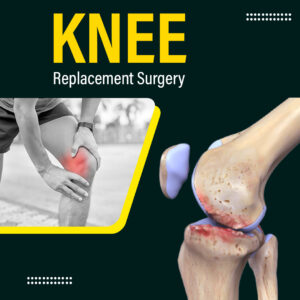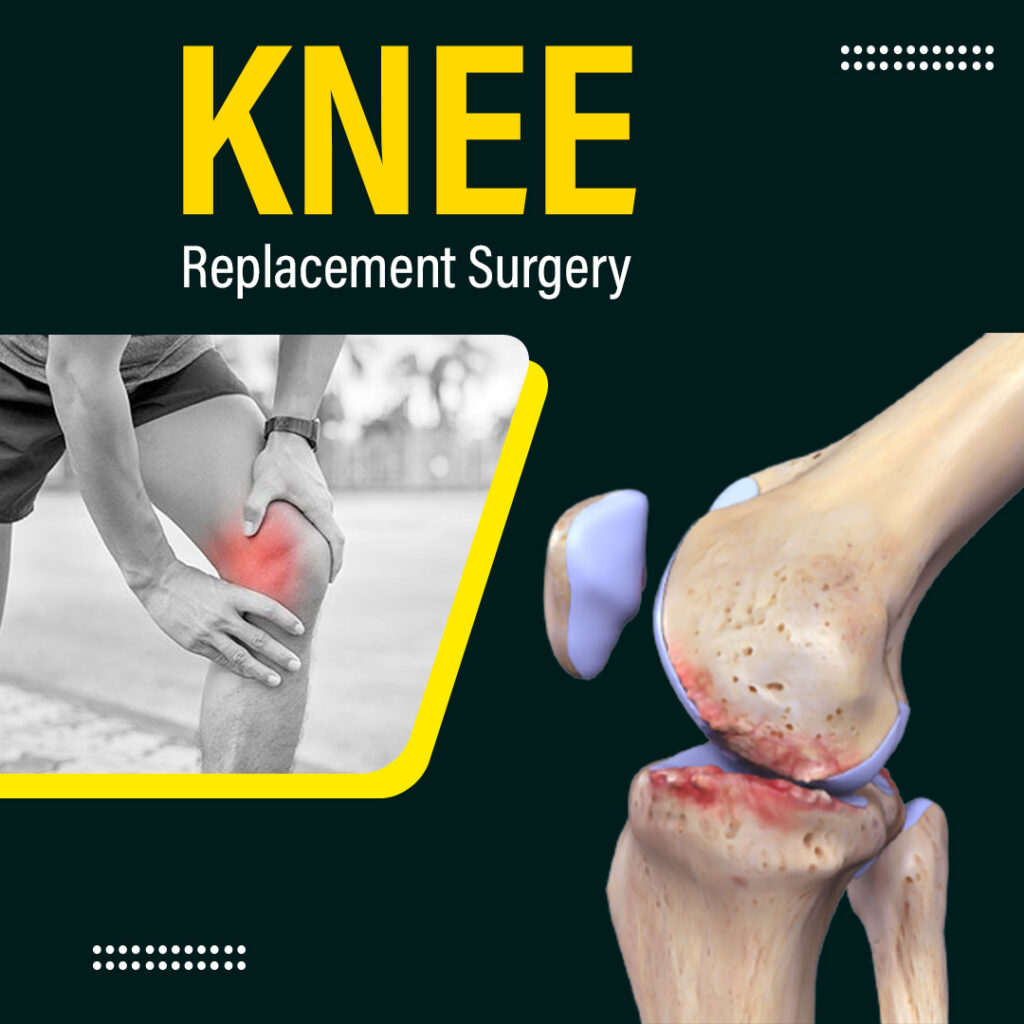Deciding whether or not to get a knee replacement surgery is a difficult one. It is difficult since patients must be aware of both the hazards and the benefits of the operation. Here’s everything you should know about knee replacement surgery.

What Is Knee Replacement and How Does It Work?
Knee replacement is a modern surgical treatment that relieves pain and disability by replacing the weight-bearing surfaces of the knee joint. It is done by implanting an orthopaedic metal and plastic component structured like a joint into the knee to move appropriately. Knee resurfacing is another term for it.
What leads to Knee Replacement?
Although various disorders might lead to a knee replacement, the most prevalent cause is arthritis (either osteoarthritis, rheumatoid arthritis, or traumatic arthritis). Genetics, developmental defects, recurrent injuries, and obesity are all factors that lead to joint illness.
When is Knee Replacement required?
People with a severe knee injury will need a knee replacement. It is recommended by an orthopedic doctor when no other treatment or medication is effective. Its most typically used to treat osteoarthritis, but it can also be used to treat other knee illnesses like rheumatoid arthritis and psoriatic arthritis. Knee replacement can help you feel better and be more active.
Total Knee Replacement vs. Partial
Total Knee Replacement (TKR)
Your knee joint is repaired by a surgeon who covers the thighbone with metal and encases the shinbone in plastic. The smooth surface of the prosthesis replaces the rough and uneven surfaces. Some bone and cartilage are removed during the surgery.
Most patients complete therapy in eight weeks or less, at which point they should be able to move around independently and resume their normal activities.
A patient will have to stay in the hospital for at least 3-5 days. In a hospital, the patient may also receive a combination of physical and occupational therapy. The knee is most usually cradled in a passive motion while medical personnel checks your knee’s limits. The doctor will most likely recommend physical therapy for additional rehabilitation.
Partially Replaced Knees
Your surgeon will replace only the damaged or arthritic parts of your knee. The advantages of this method include a smaller incision, less bone and blood loss, and reduced pain. Patients who have a partial knee replacement recover faster than those who have a total knee replacement (Total Knee Replacement). The main drawback is that if arthritis develops in the sections of the knee that aren’t replaced, you’ll have to undergo further surgery.
What to expect from knee replacement surgery?
Total knee replacement surgery typically takes 1.5-3 hours to complete. The patients are sent to the recovery room, where their vital organs are closely monitored. The patients are returned to their hospital rooms once they have been stabilized.
- The patient’s ability to pass urine will be difficult at first, which may be exacerbated by pain drugs. Physical therapy is an essential aspect of rehabilitation and demands full participation for the best results.
- Physical therapy can begin 48 hours after surgery. There could be some discomfort, pain, and stiffness. Knee immobilizers may be required to stabilize the knee during physical treatment, walk, and sleep.
- The operated leg is initially linked to a CPM machine, which moves the knees through various degrees of range of motion for hours while the patient relaxes.
- The patient will eventually begin walking up and downstairs with the assistance of a walker and crutches. The thigh and calf muscles are strengthened with a variety of at-home activities.
Dr. Abhijeet Gholap a Joint Replacement Surgeon in Viman Nagar provides excellent knee replacement surgery at Aster Speciality Clinic.

